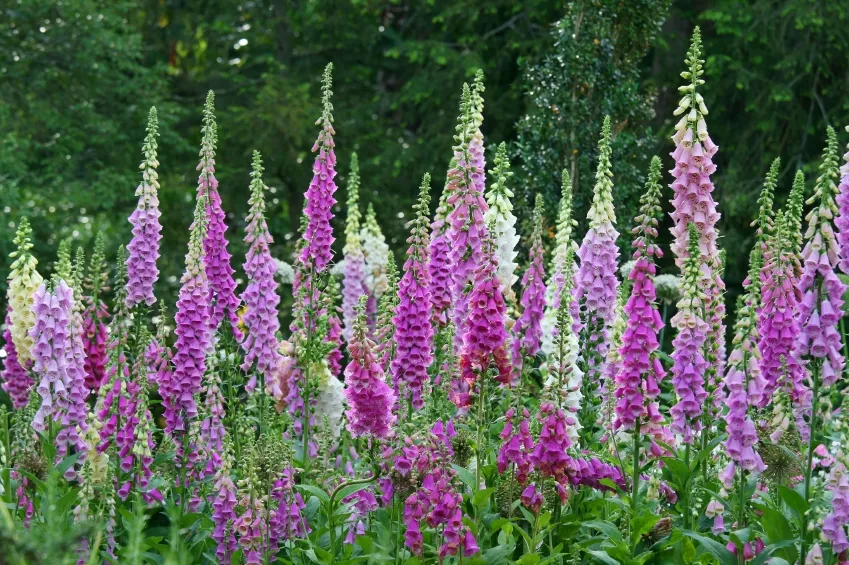It is synonymous with toxicity and yet it is popular for its colorful flowers. So that you can enjoy the foxglove for a long time, it should be planted in a location that resembles its natural habitat.

location requirements
Foxgloves prefer to grow in semi-shade. But he is not demanding. He is also satisfied with a position in full sun. It is important for him that he is not exposed to persistent heat that could quickly dry out his soil. A place in the shade can also be offered to him.
In addition to a moderate to high amount of sunshine, a sheltered location is important for this plant. A draughty location could quickly break the tall inflorescences. But don't overdo it: The location shouldn't be absolutely windless.
Caution: Since Foxglove is extremely poisonous, it should not be planted in households or gardens with small children or free-roaming animals such as dogs and cats. There is a high risk that children and animals will get poisoned by it.
Requirements for the substrate
In order to keep the care of the foxglove low, a suitable substrate should be chosen from the start. In addition to a permanent moderate moisture level, many nutrients are important to keep Foxgloves thriving and disease resistant. A soil with the following properties is ideal:
- profound
- relaxed
- permeable
- wet
- rich in nutrients and humus
- slightly sour
tips and tricks
Foxglove comes into its own in front of dark trees such as arborvitae and yew as well as dark-leaved ornamental shrubs. In addition to ferns and grasses or embedded in a bed of silver candles or astilbe, it sets intensely colored contrasts.